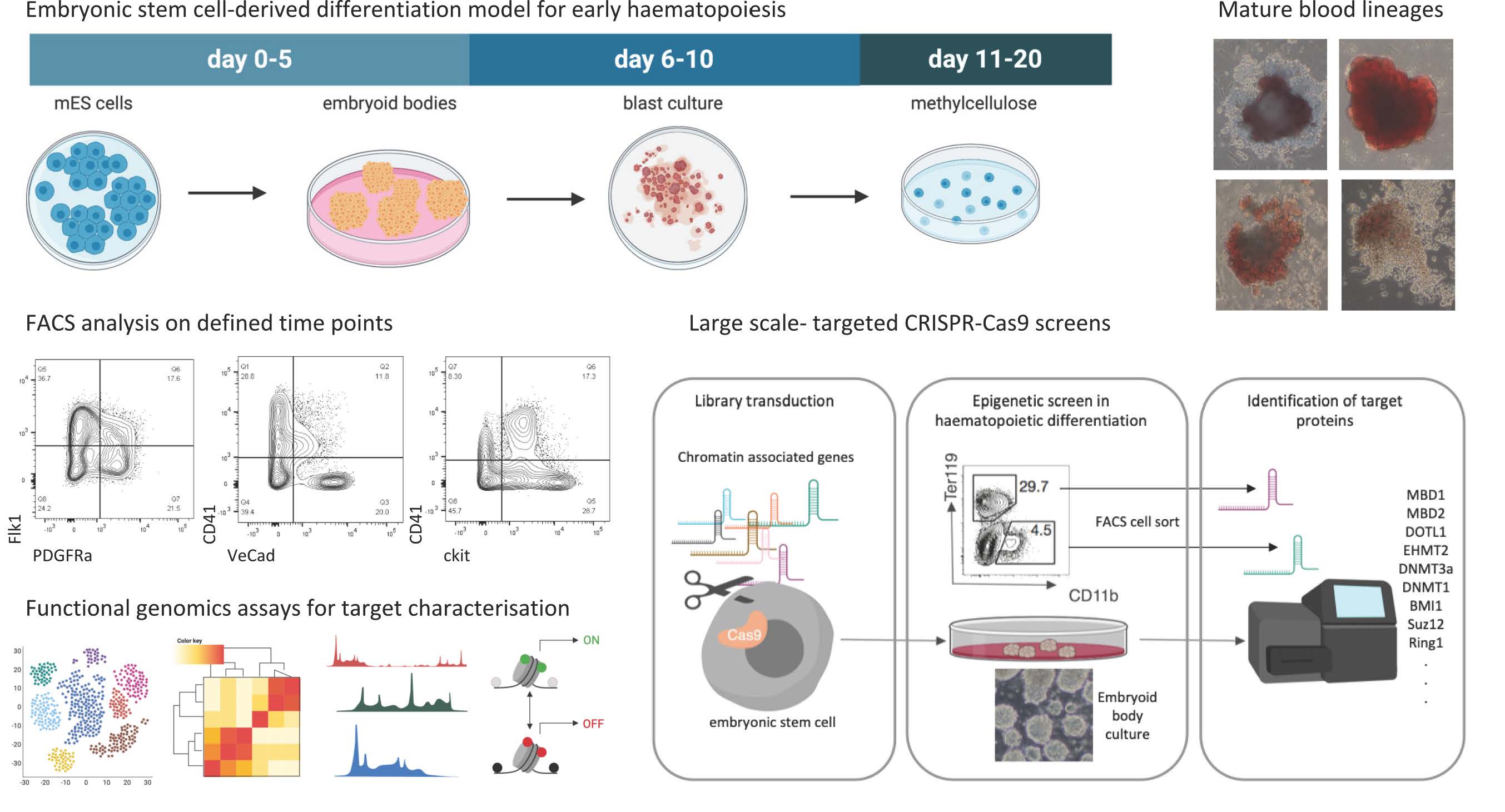Ambizione Fellow Dr. Nina Schmolka
Research interests
Molecular mechanisms in early haematopoiesis
We study molecular events that impact on early blood emergence and how genetic perturbations influence blood lineage commitment.
By using an embryonic stems cell-derived differentiation model that closely resembles blood lineage development in the embryo in combination with targeted, large-scale CRISPR-Cas9 screens, we aim to identifying novel molecular players regulating early haematopoietic development.

Haematopoiesis is a tightly coordinated process that forms and maintains all mature blood cells through expansion, lineage commitment and terminal differentiation of haematopoietic stem and progenitor cells. Surprisingly, the first arising blood lineages in the developing embryo bypass the need for haematopoietic stem cells, but are formed from lineage-restricted haematopoietic progenitor cells. Importantly, the appearance of these early progenitors is both crucial for the survival of the embryo and for the formation of definitive blood lineages in the adult. Molecular mechanisms that regulate early lineage-restricted haematopoiesis in the embryo remain largely unexplored and by combining our embryonic stem cell-derived differentiation system with large-scale targeted CRISPR-Cas9 screens, we aim to fill this gap. Our subsequent analysis of identified proteins using functional genomics assays will provide important insights into their function during early haematopoiesis.
We combine various experimental and high-throughput techniques including high-dimensional flow cytometry, (epi)genome engineering, genome-wide chromatin accessibility and immunoprecipitation assays, single-cell gene expression measurements and computational analysis of large-scale data sets.
Ultimately, understanding the basis of epigenetic and transcriptional control in early haematopoietic lineage commitment is of key relevance as misregulations of haematopoietic differentiation are implicated in numerous human diseases, including cancer, infections and autoimmune diseases.
